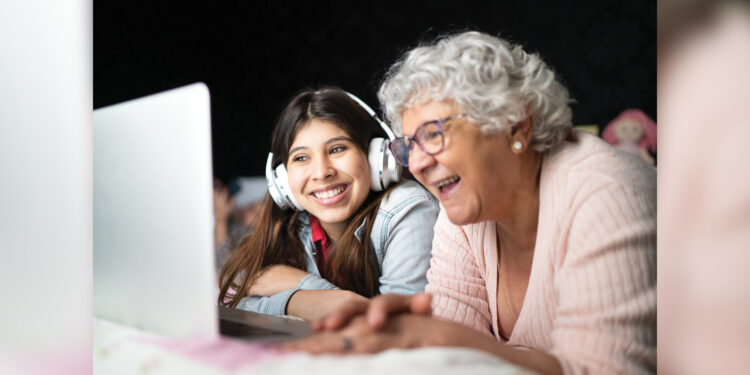A few years ago, a friend told me the older she became, the less relevant she felt. She shared that she sat with her children, and they no longer wanted her advice, her perspective, or her opinion. I felt compassion for her, but I wasn’t able to relate. Interesting how a few short years can open one’s eyes. I spent some time with two of our girls recently. Frankly, I squandered that precious time being in my own headspace about feeling old and irrelevant.
My grandkids think I’m their personal playmate, and my girls love me – no question; that isn’t the problem. They still listen to my perspective, and they tolerate my opinion. I steer clear of offering advice unless asked, though – that’s tough for a southern momma, let me tell you! Their lifestyle isn’t even entirely different from mine at their age, so why did I feel like the gap in our relatability had stretched miles in what seemed like a blink?
What I realized is that they have their own language. I don’t mean slang, or texting lingo – I mean references to experiences they share that I haven’t; inside jokes that are apparently hilarious, and maybe even about me! They’re growing their careers; I’m on the other side of mine. They’re growing their families; they’re mine, and they’re grown. I almost accepted the self-inflicted emotional isolation. I even almost wallowed in it – almost.
The 12-hour drive home gave me time to reflect – I don’t have to continue to let that gap grow. I don’t have to shy away from spending time with the younger generations because their youth makes the passing of mine a grief-riddled reality. I can take steps to find ways to stay relevant.
Research has shown that intergenerational activities enhance quality of life for both the young and the more seasoned. Studies show all age groups benefit, from toddlers, to teens and beyond. The youngest have shown increased compassion, and empathy. Teens struggle so much with acceptance – social media can shatter their self-esteem – spending time with older adults can build their self-confidence and mend that self-esteem. Even their relationships with peers have been shown to improve. For the older adult, these relationships have shown to decrease social isolation, increase mood, improve mental health, increase cognitive ability, and create a sense of connectivity.
There are so many opportunities to embrace activities where youth and older adults interact! One way is to take a class. Old and young alike are learning something for the first time, each bringing experiences to the other. Another way is to volunteer. A young person watching the work ethic of an older person through volunteerism, can make a life-long change in their attitude toward work and community service. The conversations that take place enrich both. Our youth enjoy our stories, and let’s face it, we’re happy to tell them!
Consider being a tutor. Covid did a number on our youth and their education. As an older adult, we have a way of making complicated concepts seem simple. History may be hard for someone. Our perspective, our world awareness, makes us the perfect people to talk to about it. We can apply practical life examples to math, science, business…everything!
Join a gym. My kids taught me that my flab doesn’t matter. Commitment to living healthily longer does. I’ve heard them talking about admiring a senior at the gym who was matching them push-up for push-up. Never have I heard them talk about how someone looked – not at the pool, the gym, anywhere. Only what they admire.
Take in a boarder. A friend hosts an Otters Baseball team member each summer. They have sports in common. She feels safer knowing someone is in her home, gets the best seats at the ballpark, and he gets a home and gourmet cook for the season!
Going back to work can put a little extra money in the bank and give you a sense of belonging and purpose. It can also provide an opportunity to mentor a younger adult. For a while now, I’ve been working in a school environment. I’m one of the older members of the staff. The reality of the age difference hit me when a co-worker asked who Billy Joel was! Ouch! At first it was awkward – I’d joke about being an artifact. Now, I see the advantage I have in perspective. I’m able to stay calm during chaos because my years have trained my brain to function through it. I’m a better co-worker, friend and teacher, because I have patience I didn’t have in my youth. I’ve learned that even the teenagers appreciate me asking about their lives and listening – actually listening. They want to talk about their lives; they crave encouragement, and affirmation. I used to feel silly saying, “I don’t know what that means.” I don’t feel that way now, because I’ve found they’re thrilled to tell me! Some of my students have even adopted a few of my phrases!
We can be relatable. We can learn their language and have meaningful relationships with younger generations. It is going to take being present and open, but together we can heal the gap. I truly believe that when we learn to embrace each other’s differences, we find our similarities.










